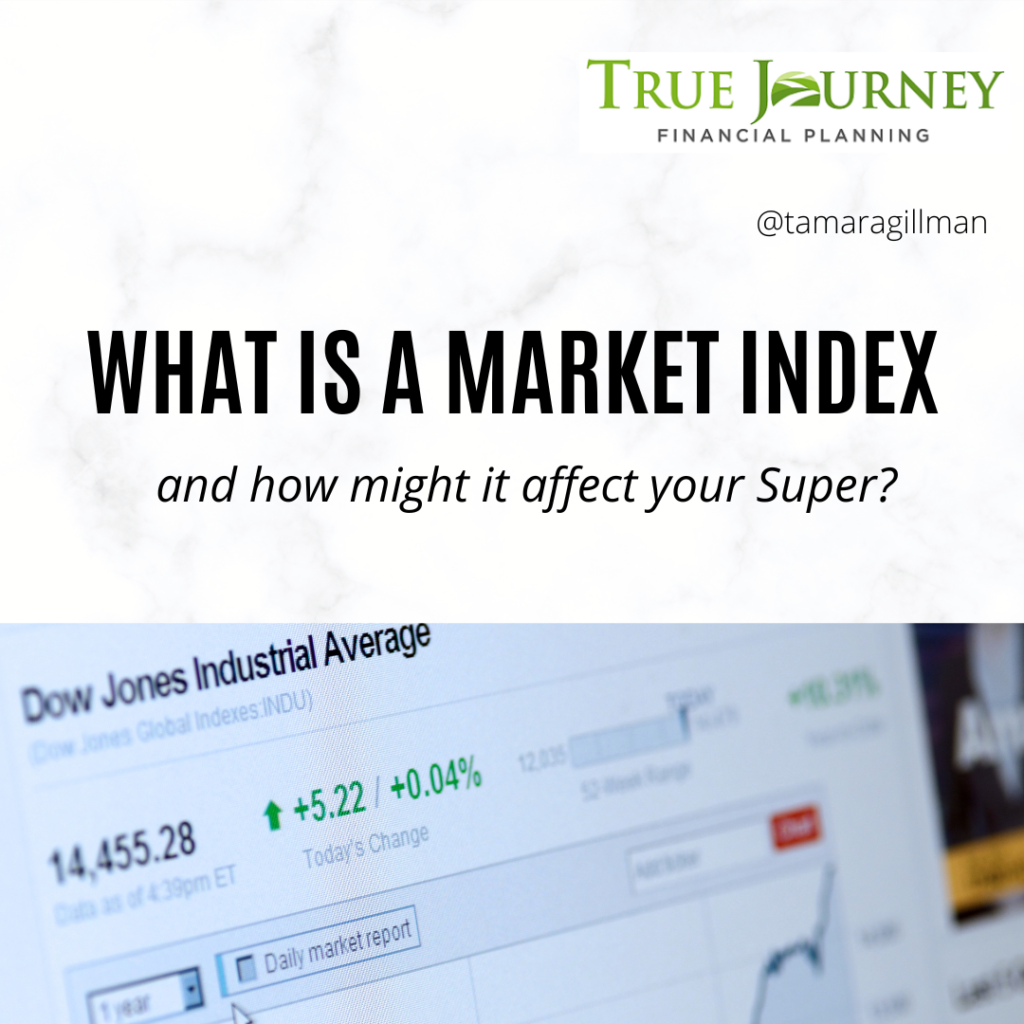
On the news, you’ll hear updates about the “All Ords”, the “Nasdaq”, the “Dow Jones”, and the “Nikkei” – These are all major share market Indices.
In this article, we discuss: what are these indices?
And what do their movements tell us about our investments?
𝐓𝐡𝐢𝐬 𝐚𝐫𝐭𝐢𝐜𝐥𝐞 𝐦𝐚𝐲 𝐧𝐨𝐭 𝐛𝐞 𝐟𝐨𝐫 𝐞𝐯𝐞𝐫𝐲𝐨𝐧𝐞, 𝐛𝐮𝐭 𝐢𝐭’𝐬 𝐚 𝐪𝐮𝐞𝐬𝐭𝐢𝐨𝐧 𝐈’𝐦 𝐨𝐟𝐭𝐞𝐧 𝐚𝐬𝐤𝐞𝐝 𝐚𝐛𝐨𝐮𝐭. 𝐒𝐨 𝐥𝐞𝐭’𝐬 𝐝𝐢𝐯𝐞 𝐢𝐧𝐭𝐨 𝐢𝐭.
𝐖𝐡𝐚𝐭’𝐬 𝐚𝐧 𝐢𝐧𝐝𝐞𝐱?
A share market index is a simple way of tracking the relative changes in the total value of the shares that are included in that index. There are many different indices covering particular national markets, as well as sectors such as large companies, small companies, financials, resources, technology companies, and many more.
𝘊𝘢𝘱𝘪𝘵𝘢𝘭 𝘪𝘯𝘥𝘪𝘤𝘦𝘴– the type featured on the news each day – simply track the total market value of the companies in the index. This means the largest companies tend to dominate an index’s movements. Indices commonly appearing in news reports include the Australian All Ordinaries Index, comprising Australia’s largest 500 companies; the ASX 200 (Australia’s 200 largest companies); the US Dow Jones Industrial Index which tracks just 30 large industrial companies; and the US S&P 500 consisting America’s 500 largest companies. The NASDAQ is focused on technology stocks and can perform quite differently from the other US indices.
Capital indices ignore the contribution of dividends to the overall performance of the shares that they track. 𝘈𝘤𝘤𝘶𝘮𝘶𝘭𝘢𝘵𝘪𝘰𝘯 𝘪𝘯𝘥𝘪𝘤𝘦𝘴 are calculated on the basis that the dividends paid by each company are re-invested back into that company. They, therefore, measure compounding returns, and over time this makes a huge difference to the measured performance of the basket of shares.
This also explains one difference between the perceived performance of the Australian share market relative to the US market. American-based companies pay very low dividends compared to Australian companies. Retained earnings add to a company’s value, so US indices behave a bit more like accumulation indices than their Australian counterparts.
𝐖𝐡𝐚𝐭 𝐝𝐨 𝐭𝐡𝐞 𝐢𝐧𝐝𝐞𝐱 𝐦𝐨𝐯𝐞𝐦𝐞𝐧𝐭𝐬 𝐦𝐞𝐚𝐧 𝐟𝐨𝐫 𝐲𝐨𝐮𝐫 𝐢𝐧𝐯𝐞𝐬𝐭𝐦𝐞𝐧𝐭𝐬?
What the movement of a particular index tells you about the performance of your share portfolio depends on how closely the two match. If you are invested in an index fund that tracks the ASX 200, then naturally the changes in the value of the index will closely match the performance of your holding in that fund.
However, the Australian share market is dominated by a small number of very large companies. If the big banks are having a bad day the whole index is likely to fall, even if resources have had a good day. If your focus is on the miners, this change in the index may not tell you much about how your shares are performing.
Of course, if you’re following the golden rule of investment – diversification – your precious savings and superannuation will be invested in both Australian and international share markets as well as cash, fixed interest, and property. Any given index can then only affect the performance of a part of your portfolio. Nonetheless, if you’re like most people, you’ll want to see the share market arrows on the TV pointing up and not down each day!
For advice on how to keep your cool during market gyrations talk to your financial adviser – we keep an eye on the main indices!
